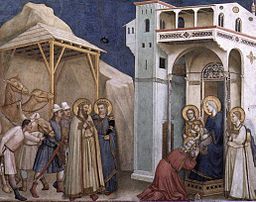ROC day is sometimes called “St. Distaff’s Day”. Of course, there is no such saint! It is celebrated on January 7th, the “first free day after Twelve-Eve Christmas”, which was a holiday of transition from Christmas revelries to the round of everyday work. It is also called “Rock” day, as the distaff was sometimes referred to as a rock. Traditionally, in old England, women did not spin during the twelve days of Christmas. ROC day or St. Distaff’s day, was their day to get back to work, and they certainly made the most of it! They were not without troubles during this time, because it was tradition that the plowmen thought it sport to set fire to the flax and tow.
The women kept buckets of water always ready to put out the fires. It was a game of sorts, with many young men being “drenched” to the bones! Also the spinners went back to work a day ahead of the weavers, so that they could have plenty of yarn for the weavers. It was their special day. THE SPINSTER In olden times, the fleece which was brought home in the summer was spun into clothing by the female part of each family during the winter.
It was a well known axiom that NO young woman was fit to be a wife until she had spun for herself a set of body, table, and bed linens. Hence the maiden was termed a spinner or spinster, and the married woman was referred to as a wife or as “one who has been a spinner” even though she carried on these traditions. Interestingly enough, is the term wife, which comes from the Anglo-Saxon word “wif” which is from the verb “wyfan” or “wefan” which means “to weave”!
| January 7 |
| St. Distaff’s Day |
| By Robert Herrick (1591–1674) |

















